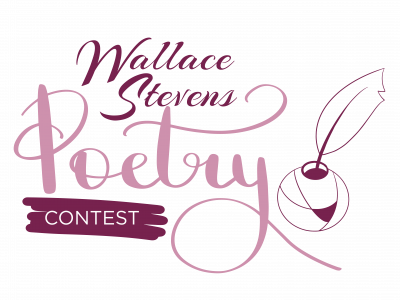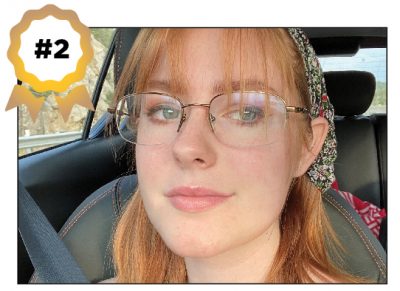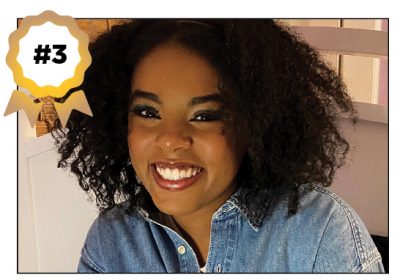
By Sean Frederick Forbes, PhD
Assistant Professor-in-Residence
Director, Creative Writing Program
UConn English Department
As my fellow judges and I read through the submission packets for this year’s UConn ECE Wallace Stevens Poetry Contest, we were impressed by the varying subjects and topics that students chose to write about. What the three of us discovered was that many of the poems moved us to think about why one chooses to write poetry and what does one hope to convey in poetic verse? We considered why poetry, if not the written word in all genres, matters as we continue to live through a devastating global pandemic. As I write this, I’m reminded of the last two lines of the poem “The Summer Day” by the late Mary Oliver, in which the speaker invites the reader to ponder this direct and undemanding, yet highly philosophical, question: “Tell me, what is it you plan to do / with your one wild and precious life?” If one is a writer, especially a poet, the theme of “Finding Joy, Finding Beauty, Finding Purpose” might very well be an earnest and awe-inspiring response. It’s a theme that best conveys how I’d like to introduce the first, second, and third prize-winning poems, respectively.
<<Text redacted>>
Charlotte Watts’ “After ‘Chinese Satellite’ by Phoebe Bridgers” is an ekphrastic, usually a poem that describes, or is inspired by, or speaks to another work of art, typically visual art, but here we have a poem based on a song by a 2021 Grammy-nominated musician. A reader’s first impulse might be to listen to Bridgers’ song, but the splendor of this poem is in engaging with the images and phrases, and also the myriad narratives Watts creates throughout in lines such as: “maybe I would sleep easier if / there were ufos over my street.”
Zara Williamson’s “To Find God in Me” is a spoken word poem that acts as a homily for a speaker who confronts and analyzes how body image, the mother/daughter relationship, and religion affect a teenage girl’s life. Williamson uses the pivotal refrain “But Momma says” three times in the poem to convey that despite any misunderstandings, tensions, and upheavals that the speaker may have in her teenage life, her mother listens to understand, thus allowing the speaker to write confidently with lines such as: “I talk to the sky sometimes / I imagine She listens with her ears open as my heart / Loud as my voice ringing in the Church bathroom.”
A reader will find joy, beauty, and purpose in these three poems since the personalities and voices of each speaker convey so acutely what it means to live and write in the 21st century.
The 2022 Wallace Stevens Poetry Contest will open in January 2022 and is open to UConn ECE Students in any discipline.Look for e-mail correspondence sent directly to your school.
<<Section redacted>>
after "chinese satellite" by phoebe bridgers
maybe i wouldn't cry like i do
if i thought someone
could hold me close, whisper
the sky was carved, the mountains
whittled, the plains roped out;
all for you.
if they could forgive me
(when i was twelve and my genes were poisonous
fifteen and couldn't look at a boy while i broke his heart
seventeen and speeding serotonin out of myself)
if they could know everything bad in my bones and love me still.
i wish 'want' would turn over easy to 'belief'
but i was never skilled at self-persuasion
maybe i would sleep easier if
there were ufos over my street -
grand government conspiracies or just a lonely cryptid
making his way through a distant forest,
anomaly eyes locked on the same moon.
i want to be made by more than coincidence,
to have some code built within my bones, saying
here is what you do. here is what is all means.
i knew you the whole time.

Biography
Charlotte Watts is an 18 year old writer from Windsor, Connecticut. She has read at Sunken Garden and was a finalist for the 2020 Smith College High School Poetry Award. She is going to Lesley University in the fall to major in Creative Writing.
Context of Poem
As a lifelong agnostic Quaker, my relationship with faith is complex and fluid. In this poem, I wrestle with the emotional consequences of non-belief, as well as the longing to know a higher meaning.
To Find the God in Me
I wear this body like my Sunday morning Church dress
Like this mahogany skin does not sit right on my bones
This hair -- tight coils that dance along my scalp-- fits like a bright pink bonnet
Too tight and too much
But momma says I'm pretty
My reflection looks a lot like stained glass these days
Where my face is a puzzle of pieces that is almost unrecognizable most of the time
But momma says she sees God in me
I suppose these hands are like my Church gloves
Palms white and soft as silk
These are prayer hand s, you see
I talk to the sky sometimes
I imagine She listens with her ears open as my heart
Loud as my voice ringing in the Church bathroom
Asking what I will be
But momma says God hears me
So I earthquake the Church floorboards into pixie dust
Momma, God and I dance on top of clouds and my Church dress fits just right
I peer into the stained glass windows
And my reflection looks like someone I know

Biography
Zara Williamson is a rising senior at Westhill High School and has had a special interest in English and poetry from a young age. Throughout high school, Zara has been involved in various community service programs at Westhill and in Stamford, including her role in organizing a local poetry slam in honor of Juneteenth. She hopes to continue to be involved in the broader Stamford community through her love and involvement in the arts, and wants to thank UCONN for considering her work.
Context of Poem
“To Find the God in Me” explores the stressors of the teenage experience, including the developing and nonlinear journey towards positive self-image. The poem, written from the perspective of a young teenage girl, analyzes the role of religion and motherhood in soothing stressors, specifically that of imposter syndrome and body dysmorphia.